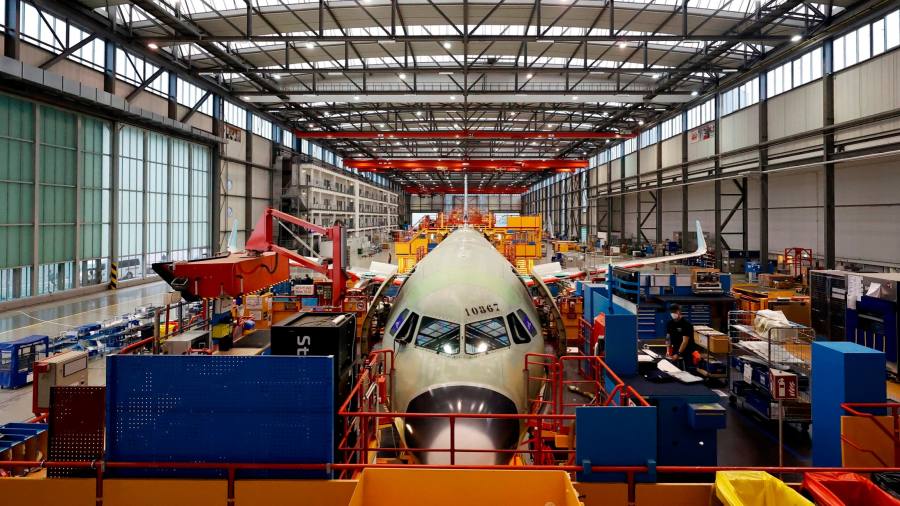Airlines placed orders for close to 1,200 new aircraft in the first five months of the year, underlining the resurgent demand from the industry as passenger traffic continues to rebound in the wake of the pandemic.
The figures were bolstered by three standout deals, including the announcement in February by Air India to purchase 470 single-aisle and long-distance widebody aircraft from Airbus and Boeing, according to research by aviation consultancy IBA. Total orders to the end of May — including options — were 1,198.
The large order haul underlines how quickly airlines’ demand has bounced back to pre-pandemic levels. The International Air Transport Association, an industry body, said this week that domestic travel had regained pre-pandemic levels and overall passenger traffic grew 46 per cent year-on-year in April led by carriers in the Asia-Pacific region.
Aircraft demand has been fuelled by persistent industry-wide capacity constraints which have pushed out available delivery slots for the most popular models towards the end of the decade. Airbus and Boeing, along with engine makers, have been struggling to meet ambitious delivery targets amid a shortage of components since the peak of the pandemic.
“Airlines are rushing to get capacity back, bringing stored aircraft back and ordering new ones. They are all keen to get to the front of the queue for deliveries,” said William McClintock, manager of market analysis at IBA.
Net orders, which take account of cancellations, in 2022 were 1,592 — almost double the 812 orders placed in 2019, the year before the Covid pandemic all but brought air travel to a standstill, according to IBA data.
The bulk of the net orders, or 1,436, were for single-aisle aircraft, notably Airbus’ best-selling A320 family of jets. Net orders for widebody aircraft which are used on long-haul international routes were 156, a fraction over the 148 tally in 2019.
The wide-body recovery now “looks sustainable,” said McClintock. “Before the pandemic, delivery rates were outstripping orders and did not look sustainable.”
The industry’s supply-demand balance is expected to remain out of kilter, however, for some time with executives warning that delivery problems will persist until at least next year.
David Calhoun, chief executive of Boeing, warned on Friday that progress on fixing the industry supply chain problems had been “frustratingly slow”.
“We’ve got to be smart about how we manage supply against that demand spike, and it is reasonably big,” Calhoun said at a Bernstein conference in New York. “On the flip side, on the supply chain, it’s just frustratingly slow-going to open up the constraints.”
While Boeing had seen improvements in some areas of its supply chain, Calhoun said the ability of both the US group and Airbus to meet customer demand would still be “constrained five years from now”.
Guillaume Faury, CEO of Airbus, said last month that the supply chain crisis gripping the industry could last into next year.
Read the full article here




